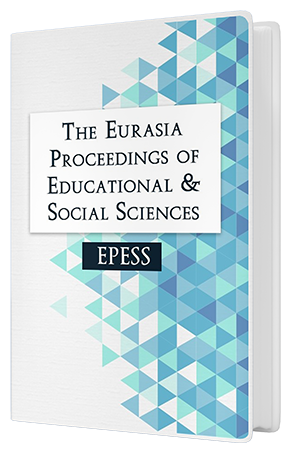INVESTIGATING THE DISTINCTIVE ROLE OF THE INTERACTIVE WHITEBOARDS FOR MATHEMATICS TEACHING
Keywords:
Interactive whiteboards, mathematics education, teaching/learning strategiesAbstract
Interactive Whiteboards (IWBs) are a relatively new tool that provides interesting affordances in the classroom environment, such as construction of visualizations and multimedia. These affordances make IWBs an innovative tool with high potential for mathematics instructional environments. The research involved a small group of Italian mathematics teachers in secondary schools and aimed at exploiting the distinctive role of IWBs in mathematics teaching. Three essential elements were considered: the mathematical tasks on which students work, the discourse activities in the classroom and the support that IWBs give to the previous two elements. Analysing a first series of video recorded lessons, the teachers and the researcher engaged in a discussion about possible improvements relating the IWB use to enhance high-level mathematical tasks and productive discourse interaction. Outcomes of the discussion were used to design and enact a new set of lessons, again video recorded and analysed. Outcomes were compared with those of the previous set. Results show significant improvements in the tasks’ quality, in the classroom dynamics and in the exploitation of IWBs affordances. What emerged from the study is that IWBs technology may be used to enrich the lessons’ experience and that an attentive orchestration by the teacher leads to the construction of an effective and beneficial learning and teaching environment.Downloads
Published
Issue
Section
License
Copyright (c) 2014 The Eurasia Proceedings of Educational and Social Sciences

This work is licensed under a Creative Commons Attribution-NonCommercial-ShareAlike 4.0 International License.
The articles may be used for research, teaching, and private study purposes. Any substantial or systematic reproduction, redistribution, reselling, loan, sub-licensing, systematic supply, or distribution in any form to anyone is expressly forbidden. Authors alone are responsible for the contents of their articles. The journal owns the copyright of the articles. The publisher shall not be liable for any loss, actions, claims, proceedings, demand, or costs or damages whatsoever or howsoever caused arising directly or indirectly in connection with or arising out of the use of the research material. All authors are requested to disclose any actual or potential conflict of interest including any financial, personal or other relationships with other people or organizations regarding the submitted work.




